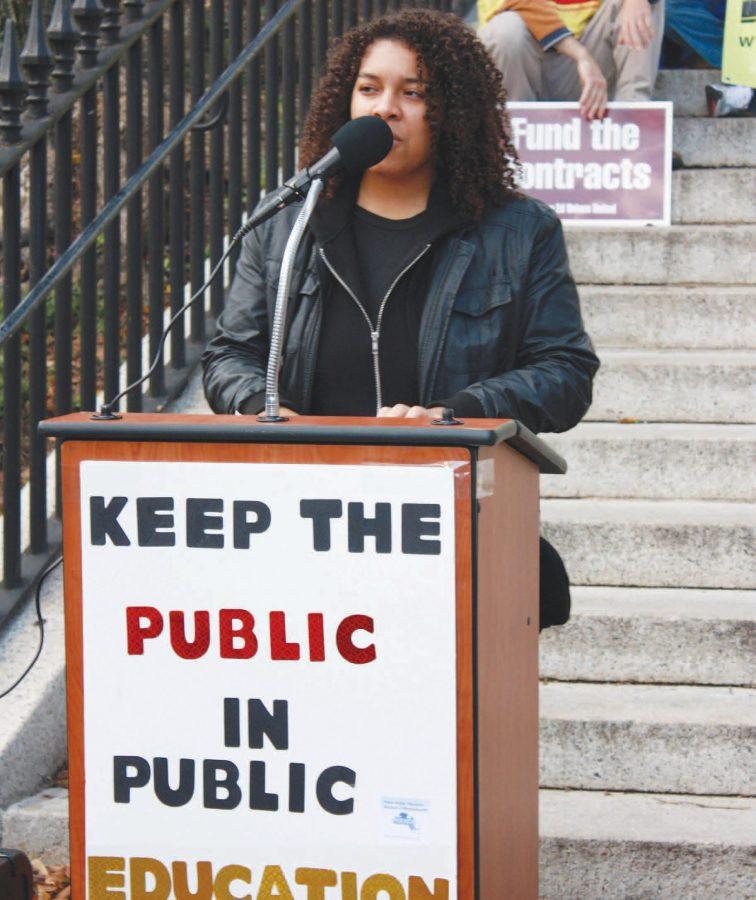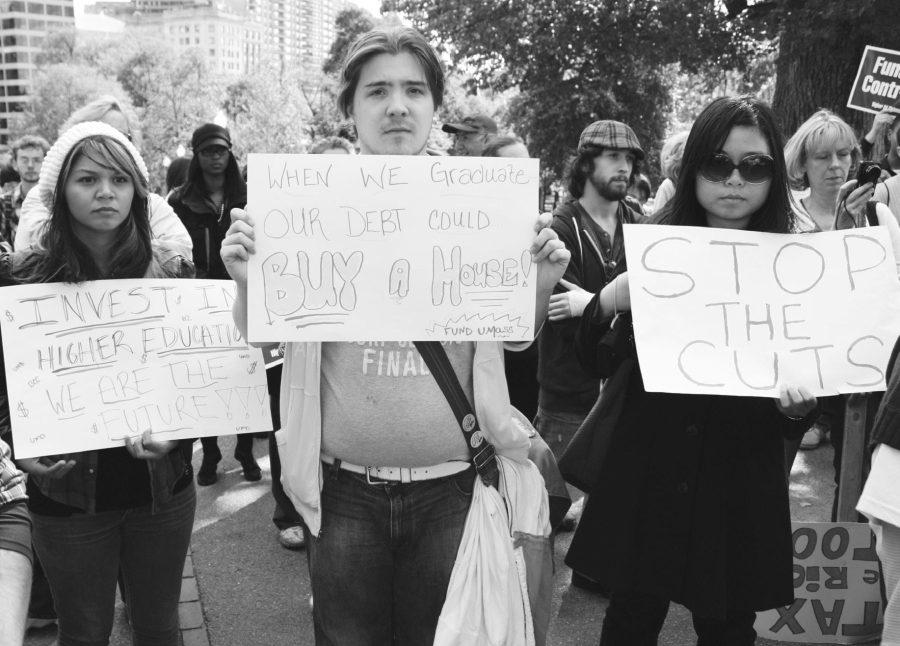Students are footing more of the bill of public higher education then ever before in Massachusetts. According to US News, Massachusetts lost 37 percent of its higher education funding from the state in the past two years. The national average lost 6.9 percent. Massachusetts’ students in public higher education saw a 30 percent higher drop then the rest of the nation over the last two years. Mass Students Uniting, a group on the UMass Boston campus helped organize with the Public Higher Education Network of Massachusetts (PHENOM) a march of 100 miles from Pittsfield, MA to the State House to bolster support for the “Great State of Mind” campaign. The campaign’s main goal, according to phenomonline.org the group’s official website, is to raise Massachusetts from number 46th in the country in per capita support for higher education to become “up to the national average in state support and down to the national average in student costs.” However, this situation of being underfunded is common to all 50 states. Over the last 26 years, the national average percent of higher education funding coming from tuition has risen from 24.5 to 37.3. Students and staff from all 15 community colleges in the state, nine state universities, and the five UMass campuses gathered on Thursday, October 7th to rally support across the street from the Statehouse in the Boston Commons. UMass Boston alumni, ex-student trustee and PHENOM operating director Alex Kulenovic, limping from the four day march, and nursing a wasp sting in the neck, made his way to the rally podium for a speech. “If we are ever going to do anything about [equalizing] income and wealth we first have to narrow the opportunity gap and there is absolutely nothing you can do to change that except to make higher education a right,” Kulenovic said. According to PHENOM, the average state spends six percent of their annual budget on public higher education, but Massachusetts spends only three percent. Over the past year there has been a 5.8 percent increase in public college enrollment across the nation. Gubernatorial candidate Jill Stein in her speech at the rally contested the attitude of many that the state does not have the funds “because remember, Wall Street had its biggest year ever for profits. The CEO bonuses are at an all time high and that America’s big corporations including those in Massachusetts have more money in the bank then ever before. The problem is much more than just not having enough money in the budget- it’s about the values and the priorities on Beacon Hill as well as on Capital Hill. PHENOM President Stasha Lampert plans to continue organizing on campus with students with International Education Week coming up [November 16th through 21st] and their campaign against question 3 and its proposed cut of state sales tax from 6 to 3 percent. There are a lot of great things going on in this next semester and “hopefully we will begin to see more students getting involved.” Coinciding with Dr. Stein’s claims, the State Higher Education Executive Officers (SHEEO), a group of public education executives from all over the country released a report in 2010 in which they claim that over the last 10 years “total taxable resources per capita increased 54.9 percent, while the effective tax rate increased 2.2 percent.” There are more resources to tax then ever before, and the tax rate has not been increased proportionally. The government is taking in more money then ever, and spending on education at a lesser rate then in In 1984, according to the 2010 SHEEO State Higher Education Finance report that $6,621 was being spent per student. If adjusted along with inflation, to fund each student at a similar rate the states would have to spend $13,912 per student. The funding for 2009 was $6,928, which in 1984 would have been only $3,297 per student, with the inflation rate calculated through the Consumer Price Index. Not just in Massachusetts, but across the nation, states are contributing 52.4 percent less then they did just a few decades ago.
Students' faces showing their dissappointment as they protest cuts to higher ed.


